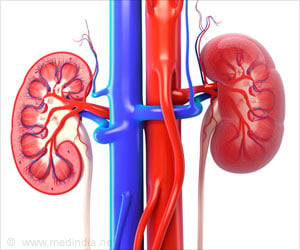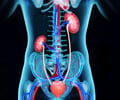
‘Undocumented patients with ESRD (end-stage renal disease) and no access to regular, scheduled hemodialysis describe significant physical and psychological distress that not only affects them, but their families as well.’
Tweet it Now
"Undocumented patients with ESRD (end-stage renal disease) and no access to regular, scheduled hemodialysis describe significant physical and psychological distress that not only affects them, but their families as well," said the study's principal investigator Dr. Lilia Cervantes, a physician at Denver Health and assistant professor of medicine at the CU School of Medicine. "This suffering, coupled with higher costs for emergent dialysis, indicates that we should reconsider our professional and societal approach to ESRD for undocumented patients." Cervantes and her co-authors interviewed 20 patients at Denver Health between July 2015 and December 2015 and asked them to describe their experiences. The patients in the study do not receive regular dialysis because the special Medicare benefit covering scheduled dialysis for patients with ESRD excludes undocumented immigrants. In Colorado, only "emergent hemodialysis" is covered by emergency Medicaid, which reimburses hospitals for certain emergency treatments when a patient lacks coverage. Emergent hemodialysis is only provided when a patient becomes critically ill.
The urgent symptoms that alert the patients they've become critically ill are a sensation of drowning as fluid builds up in their chests or nausea and vomiting as blood urea levels rise.
One patient described the experience: "It's happened to me twice, not being able to breathe. They saw me vomiting blood and that is when I was taken to the intensive care unit and after that I was unaware of anything around me for two days."
The study recommends an analysis of state policies to clarify whether health care professionals can define the emergency threshold so that scheduled outpatient dialysis treatment can be covered by Medicaid after a single, emergent event. Some states already take this approach, which is consistent with professional guidance on the management of ESRD as a chronic condition.
Advertisement
Source-Eurekalert















